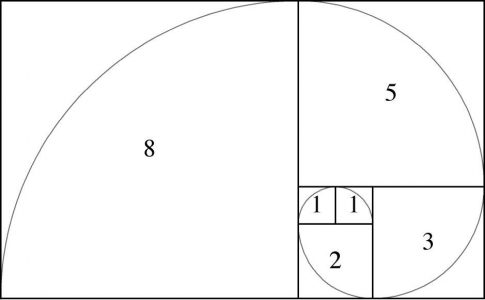
Coaching in Practice – the altitude test.
Last year, we plotted the introduction of our coaching model and the process is outlined here. Along the way we made (or so it seemed!) many changes to our Coaching Journal as we refined and developed it into the model we felt would work for us. Underpinning it was, of course, Teaching Standards (as a set of principles), but the essence of the model is more fully weighted with our Quaker values of integrity, equality, simplicity, community, stewardship of the Earth, and peace. We determined early on that these values have to be lived by our community and therefore our model has grown to fully encompass them. We also chose to label our model as a ‘Coaching and Mentoring’ programme. This came about towards the end of our planning and preparation and was due to a last-minute course, attended by one of the core group and provided by the NEU who suggested that an additional mentoring focus would better support newer teachers as well as those who had become ‘a bit set in their ways’. We agreed.
At the outset, I had asked for three volunteers to be coached outside of the usual PM structure. I knew I wanted to work with a ‘range’ of teachers as I didn’t want the model to be seen as some kind of ‘capability’ procedure. I was pleased to see that one teacher, who is seen across the school as an ‘outstanding’ practitioner, volunteer as this reinforced the idea that none of us can afford to stand still professionally and we can all improve our practice; no one is ever ‘all that’! There have been several developments along the way, which have excited and inspired us; here are some of them.
The Core Group, consisted of mostly young and inexperienced teachers, and one TA. We met each week and refined and adjust the model, using our knowledge of the school, the staff and our students to guide us. We knew from the beginning that our students should be involved in this process so we determined to build in a student voice questionnaire at the beginning and repeated at the end of the coaching cycle. But we also wanted coached staff to feel this was their experience, so to this end, all teachers are asked to choose up to five students (an arbitrary number, but given the size of our tiny school, a sizable number for feedback!) and they will then also determine the questions to be given. We felt it was important that this exercise be an evaluation which stemmed from the teacher wanting to consciously think about their practice and what it meant to their students.
We now have two Inset days at the beginning of the academic year and we were able to utilise one of these for coach/coachee refresher training and initial meetings. For this academic year only, our coaches are line managers – not the best solution, but one we are running with in order to ensure all staff work together to continue to refine the model. However, as outlined in my previous blog, we placed our younger teachers, members of the core group, with SLT to talk them through the process. There has been some difficulty with mind-set as we try to realign our attitudes away from PM and ‘observations’. When a coach observes the lesson, this reinforces the idea of judgement – terminology is a first step and we now refer to ‘coaching sessions’. By the next academic year, we want to move completely away from coaches being line managers and want to have in place a body of coaches from the rank and file who will coach each other, hopefully across subject areas.
The difficulty has been ‘but what do we do about PM!?’ – stemming from an HR perspective. We have used the rationale from @ChrisMoyse website wherein we approach everything from the standpoint that our teachers are professionals and that even in the case of capability, this will still be approached from that perspective. We support our staff and we help them to develop. Having said that, we do need to look at PM and what it means once we have removed Lesson Observations from our ‘arsenal’. We came up with this solution: For this year only, line manages will meet to discuss data, intervention and monitor exercise books. SLT will conduct a termly ‘Learning Walk’ – this will be written up after the event, no notes will be taken. One of these ‘walks’ will be conducted by the SENCo who will monitor and support staff from this perspective only. This PM divorce will be something with which we have to challenge ourselves – at the moment it’s a bit ‘messy’!
The final, and for me most interesting, development was an outstanding teacher who could not think of some classroom-based project they wanted to develop. My initial response was to ask what they would have chosen as a target had they still been on PM, but we still came up against a blank wall. But then, looking at TS8 – we agreed that the process doesn’t have to include classroom-based projects at all and the teacher will now look at developing their practice outwards in support of colleagues, possibly as a counselor. Either way, this supports both students and staff across the school and it will involve no ‘classroom-based sessions/observations’ other than the termly Learning Walk. I’m really excited about this – it’s like the creation of another tunnel after Tom, Dick and Harry were blocked!
In essence, our final Coaching and Mentoring Journal and coach prompt/policy are here and our Work Scrutiny Learning Walk docs are within. Feedback, if you have time for it, would be much appreciated. This is our pilot year and I know we will make many adjustments as we go, but I thank @RossMcGill and @ChrisMoyse for their help and brilliant training days – eagerly waiting for day 2 in February!
PS – As a school we are adopting the whole concept of coaching for all staff, not just teachers: support, office, kitchen/grounds – everyone will be coached.

Thanks for sharing this, Ann. I think it’s impressive that you are putting so much careful thought into developing your programme, learning from experience, acting on feedback and refining it as you go. You are obviously committed to engaging all members of the school community, honestly addressing the tricky issues and trying to find the clear water between coaching and PM. Best wishes on the ongoing journey!
LikeLike
Thank you Jill. Coming from you that means a great deal to me.
LikeLike
So good to read this Ann – as well as the PM headaches; there is a way…. and I hope to share the ups and downs from my experiences… Keep us posted!
LikeLiked by 1 person
Thanks Ross. I’m looking forward to February’s session.
LikeLike